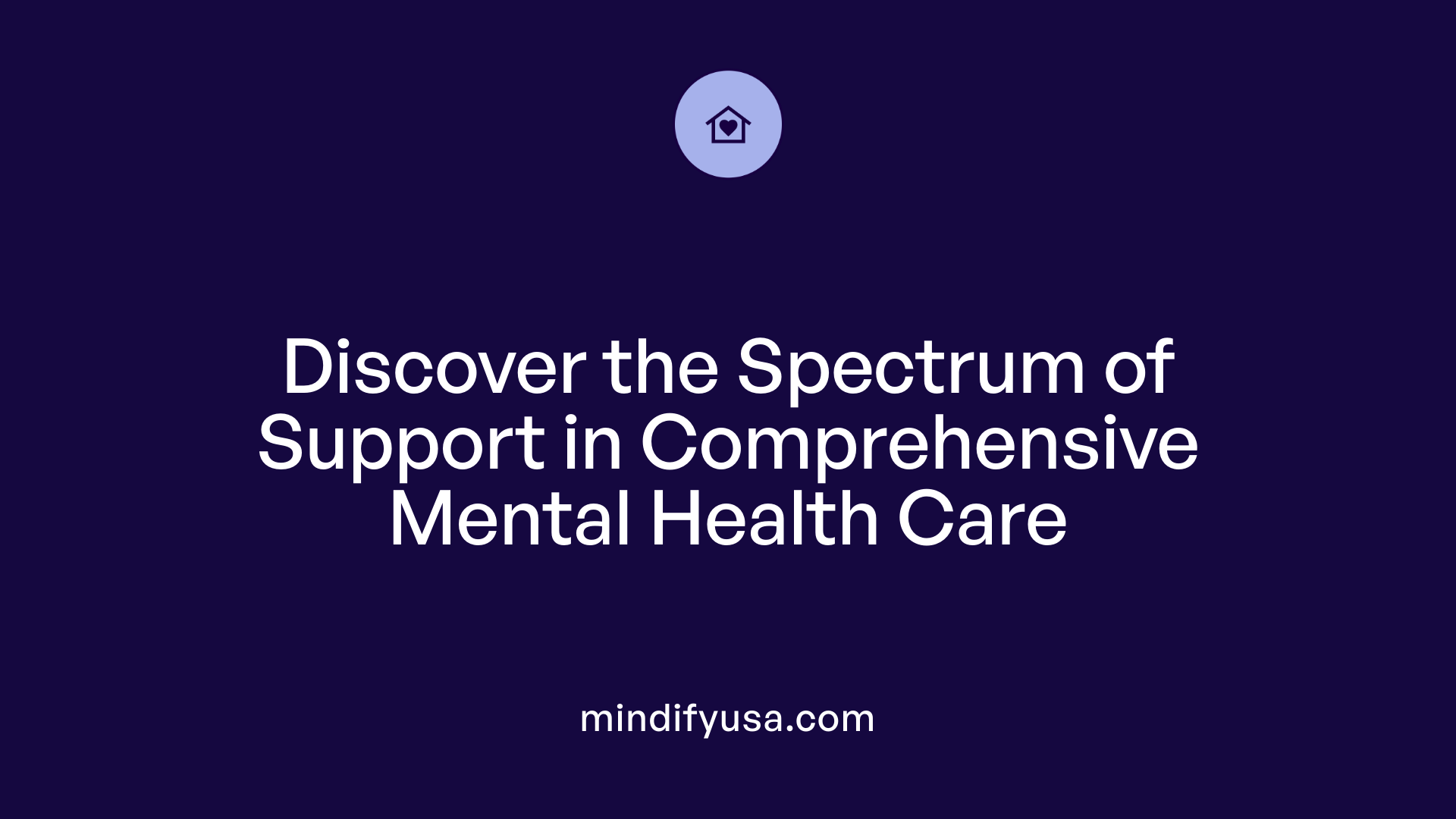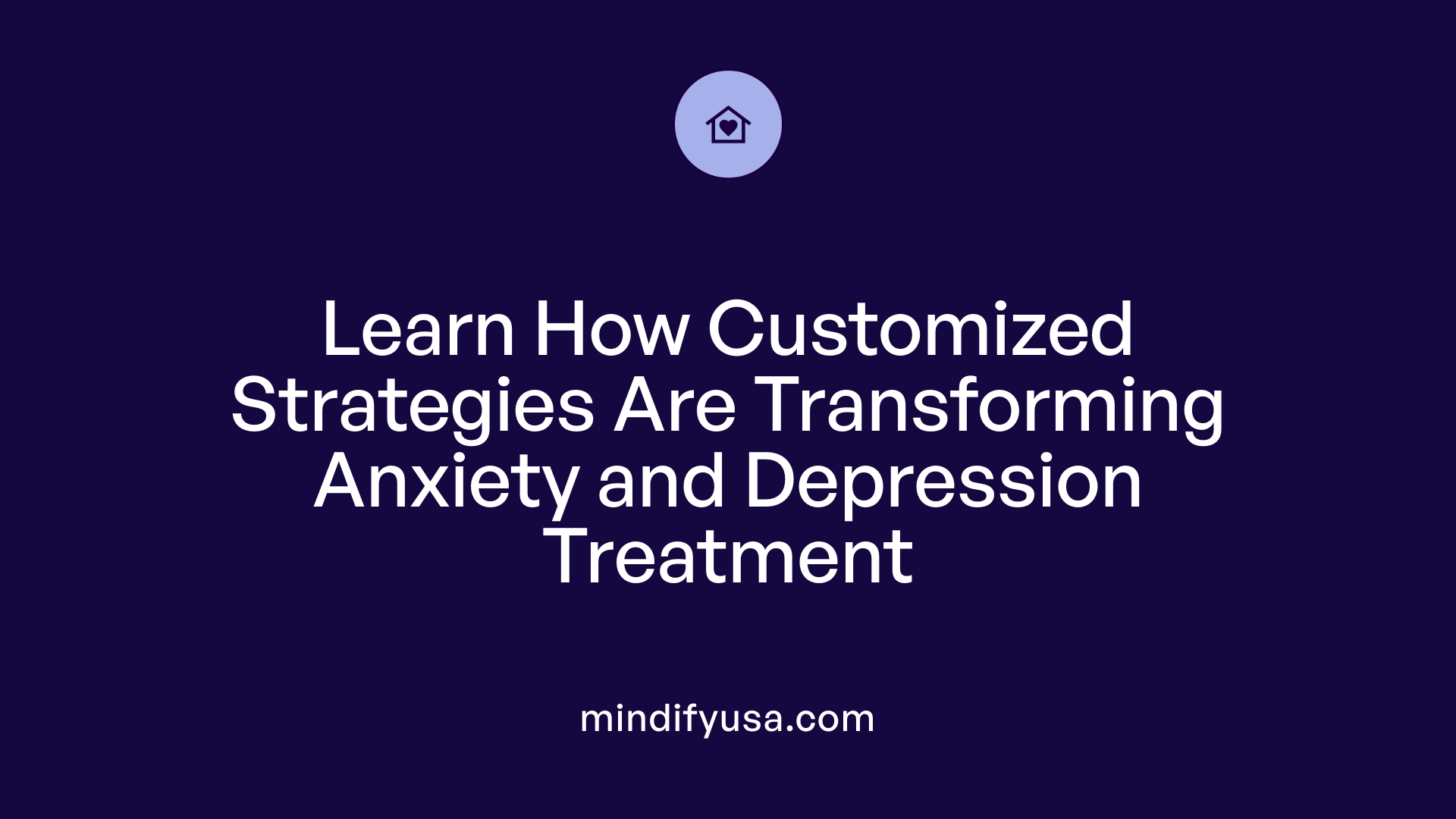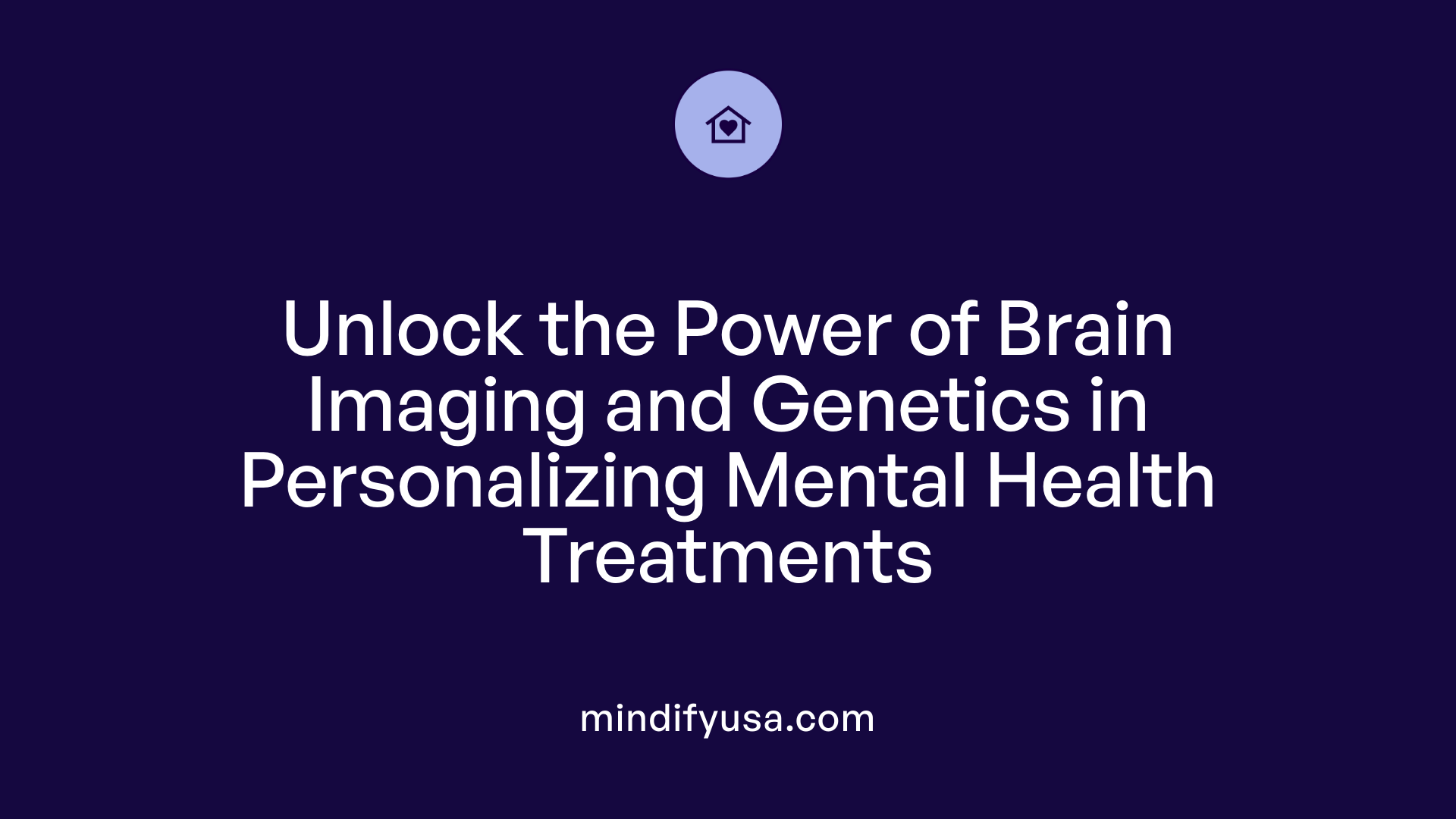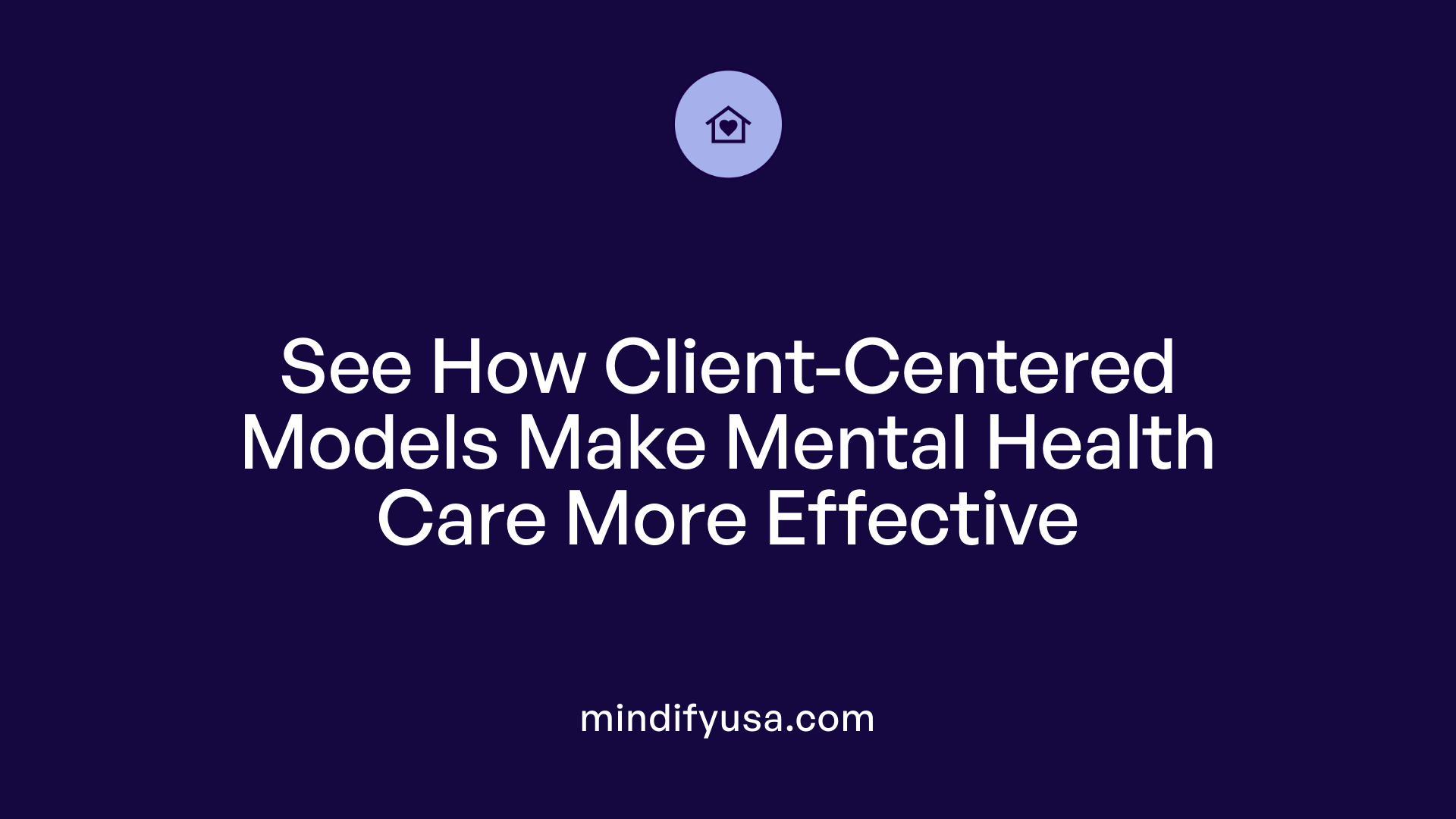Understanding the Shift Toward Personalized Mental Health Care
Mental health conditions like anxiety and depression affect millions worldwide, yet traditional treatment models often fall short of delivering effective relief for all. As our understanding of the brain's complexity and individual variability grows, personalized mental health care has emerged as a promising approach. This article explores why tailoring treatment to the individual's unique needs, biology, and circumstances is crucial to achieving better outcomes, reducing trial-and-error, and enhancing overall well-being.
What Are Comprehensive Mental Health Services?

What are comprehensive mental health services?
Comprehensive mental health services are designed to meet the diverse needs of individuals facing mental health challenges. They include a wide spectrum of treatments and supports, such as outpatient therapy, inpatient care, crisis intervention, and substance use treatment. These services also cater to specialized populations including children, older adults, and those experiencing homelessness.
These programs are typically delivered through integrated community-based models, such as Certified Community Behavioral Health Clinics (CCBHCs). These clinics ensure coordinated access to vital mental health services around the clock, removing barriers related to cost or geographic location.
What range of treatments and supports do they include?
Comprehensive services encompass psychotherapy, medication management, crisis stabilization, peer support, case management, and rehabilitation programs. They often integrate substance abuse treatment and preventive measures, actively addressing social determinants of health that can affect mental wellness.
How do community-based integrated models function?
Community-based integrated models emphasize collaboration among healthcare providers, social services, and community resources. This integration helps create seamless care pathways that support individuals from prevention through treatment and recovery stages. Such models promote continuity of care and reduce fragmentation.
Why is person-centered care and holistic support important?
Person-centered approaches in comprehensive mental health services focus on the unique needs, preferences, and goals of each individual. This care includes addressing physical health, psychological well-being, social connections, and cultural background. Holistic support aims to foster recovery and resilience, ensuring that treatment plans empower patients and prioritize safety and quality of life.
Overall, comprehensive mental health services strive to provide inclusive, accessible, and effective care that supports individuals’ mental health journeys within their communities.
Personalized Approaches to Treating Anxiety and Depression

How are anxiety and depression typically treated in mental health services?
Anxiety and depression treatment in mental health care centers around personalized approaches that address each individual's unique needs. Typically, these conditions are managed by combining psychotherapy, medication, lifestyle changes, and strong support systems.
Psychotherapy plays a central role, with cognitive-behavioral therapy (CBT) being one of the most effective modalities. CBT helps patients identify and reframe negative thought patterns while developing coping skills. Additional therapies might include exposure therapy and mindfulness-based techniques, all tailored to the patient's preferences and symptom profile.
Medications such as selective serotonin reuptake inhibitors (SSRIs) and serotonin-norepinephrine reuptake inhibitors (SNRIs) are frequently prescribed to help reduce symptoms, especially for moderate to severe cases or when anxiety and depression co-occur. Personalized treatment plans leverage genetic testing and patient history to choose the most suitable medication, reducing trial-and-error periods.
Lifestyle modifications are indispensable, complementing psychological and pharmacological treatments. Activities like regular exercise, balanced nutrition, meditation, and stress management techniques work synergistically to improve both mental and physical health. Rebuilding relationships, improving self-esteem, and setting achievable personal goals are also incorporated.
Importantly, mental health services emphasize patient involvement in treatment decisions. This engagement fosters trust, boosts adherence to treatment plans, and enhances outcomes. Resources such as crisis helplines and treatment locators further ensure timely access to care.
Through this multi-faceted, individualized approach, patients experience faster symptom relief and improved daily functioning, marking a significant advancement beyond one-size-fits-all treatment models.
How Personalization Enhances Mental Health Treatment Outcomes
Tailoring Treatment Based on Medical History, Genetics, and Lifestyle
Personalized mental health care adapts treatment plans to each individual by considering their medical history, genetic profile, lifestyle factors, and specific personal goals. This approach allows clinicians to select therapies and medications that are more likely to be effective for the patient’s unique biological and psychological makeup. For example, genetic testing can pinpoint which medications may work best, reducing the common trial-and-error period associated with standard psychiatric treatment methods.
Quicker Symptom Relief and Reduced Risk of Relapse
Using personalization in treatment strategies often leads to faster alleviation of symptoms. By integrating modalities such as cognitive-behavioral therapy, medication management, and mindfulness practices that specifically address an individual's brain circuitry and lifestyle needs, patients experience more rapid improvement. Additionally, tailored approaches help minimize the chances of relapse by maintaining ongoing adjustments aligned with the patient’s evolving condition.
Improved Patient Engagement and Adherence
When patients are actively involved in shaping their treatment plans, engagement and adherence increase significantly. Personalized care fosters stronger therapeutic relationships between patients and providers, enhancing trust and collaboration. This involvement supports patients in understanding and committing to their treatment, reducing frustration caused by ineffective standard treatments and improving long-term outcomes.
Alignment of Treatment Goals With Patient Priorities
Effective personalized treatment aligns therapy objectives with what matters most to the patient, such as returning to work, improving relationships, or enhancing daily functioning. Treatment plans are continuously adjusted to support these goals, ensuring care is both relevant and motivating. This commitment to client-centered care helps sustain progress throughout the healing journey and into aftercare, promoting holistic wellness and recovery.
The Role of Precision Mental Health: Brain Imaging and Genetic Insights

How Are Brain Scans and Genetic Testing Used in Personalizing Mental Health Care?
Precision mental health integrates brain imaging techniques like functional MRI and genetic testing to tailor treatment approaches specifically to an individual's unique neurobiology and genetics. Brain scans help identify dysfunctions in large-scale brain circuits, such as hyperconnectivity in the default mode network or underactivity in cognitive control circuits, which correlate with certain psychiatric symptoms. Genetic testing reduces lengthy trial-and-error in medication management by identifying the most effective drugs for each patient, enhancing overall treatment efficiency.
What Are Brain Circuit Biotypes and How Do They Influence Treatment Response?
Research reveals distinct brain circuit-based biotypes of depression and anxiety that influence how patients respond to various treatments. For example, a "cognitive biotype" characterized by decreased activity in the cognitive control circuit often shows poor response to traditional antidepressants. Identifying these biotypes enables clinicians to offer more precise interventions aligned with the patient’s neural profile, improving the chances of successful outcomes.
How Does This Personalization Reduce Trial-and-Error in Medication Selection?
By using genetic profiles and brain circuit data, clinicians can predict which medications are more likely to be effective, significantly cutting down the traditional trial-and-error process. This approach minimizes the duration of ineffective treatments and reduces side effects, contributing to faster symptom relief and better patient adherence.
What Are Some Examples of Targeted Treatments in Precision Mental Health?
Based on biotype identification, targeted therapies include cognitive-behavioral therapy (CBT) for patients whose brain circuits indicate susceptibility to such interventions. For those with neural patterns linked to medication resistance, alternatives like transcranial magnetic stimulation (TMS) offer non-invasive brain stimulation to modulate dysfunctional circuits. Other potential treatments involve medications such as pramipexole tailored to specific biotype profiles.
| Aspect | Description | Benefit |
|---|---|---|
| Brain scans (fMRI) | Identifies dysfunctional brain circuits and patterns | Guides targeted interventions and predicts treatment response |
| Genetic testing | Determines effective medications based on individual genetics | Reduces trial-and-error, shortens treatment times |
| Brain circuit biotypes | Classification of patients based on brain circuit activity | Personalizes therapy choices like CBT or TMS |
| Targeted treatments | CBT, TMS, or biotype-specific medications (e.g., pramipexole) | Increases efficacy and minimizes side effects |
Technology and AI: Revolutionizing Personalized Mental Health Care

How Are Telehealth and Digital Therapeutics Increasing Accessibility?
Telehealth and digital therapeutics are transforming personalized mental health care by making it more accessible and flexible. Through private teletherapy sessions, patients can receive individualized treatment without leaving their homes, which is especially valuable for those managing busy schedules or living in remote areas. Digital therapeutics offer tailored interventions that adjust to patient responses, supporting continuous care beyond traditional clinical settings.
What Role Do Machine Learning Algorithms Play in Predicting Treatment Response and Suicide Risk?
Machine learning (ML) algorithms are being developed to enhance the precision of mental health care by predicting treatment outcomes and assessing suicide risk. These advanced models analyze complex patient data, including genetics, brain imaging, and behavioral patterns, to identify who may benefit from specific therapies or require urgent intervention. Although still emerging, ML holds promise for reducing trial-and-error prescribing and improving crisis prevention.
How Do Decision Support Tools Integrate Patient Data?
Decision support tools combine diverse patient data—like symptoms, medical history, lifestyle factors, and genetic information—with machine learning insights to provide clinicians with personalized treatment recommendations. This approach helps tailor interventions in real time, improving adherence and treatment effectiveness. By guiding clinicians through complex data, these tools foster more informed, patient-centered care.
What Are the Challenges and Future Potential of AI in Mental Health?
Despite its promise, AI in mental health faces challenges such as data privacy concerns, the need for extensive validation of predictive models, and the complexity of accurately interpreting diverse clinical data. However, ongoing research and technological advances suggest a future where AI-driven tools will be integral to routine care, offering earlier diagnoses, customized therapies, and better resource allocation to improve patient outcomes.
Personalized Mental Health Care in Practice: Client-Centered Models and Real-World Applications

What does comprehensive assessment involve in personalized mental health care?
A foundational step in personalized mental health treatment is a comprehensive assessment. This assessment typically reviews a client's medical history, current symptoms, genetic background, lifestyle, and cultural context. Such an approach ensures that treatment strategies are tailored precisely to individual needs rather than relying on a one-size-fits-all model. Adjustments to treatment plans are made throughout the healing journey to respond to changing needs and goals, thereby promoting quicker symptom relief and reducing relapse risks.
How are different therapeutic approaches integrated?
Personalized mental health care combines multiple therapeutic modalities to maximize effectiveness. Common components include psychotherapy, such as individual, group, or family therapy, medication management informed by genetic testing, and holistic activities like mindfulness. Tailoring these elements to each client's preferences and biological profile helps optimize treatment outcomes and ensures a more engaging and supportive recovery process.
Why are client-provider relationships critical in personalized care?
Strong client-provider relationships form the backbone of effective personalized care. Engagement and trust between the client and healthcare provider improve adherence to treatment plans and foster open communication. This collaborative decision-making process aligns treatment with the client's personal goals, such as returning to work or rebuilding relationships, which enhances motivation and satisfaction during treatment.
Which organizations exemplify tailor-made mental health treatment?
Jackson House is a notable example of an organization that uses a tailored admissions process involving comprehensive assessments to develop individualized treatment plans. They offer a blend of therapeutic options, including private teletherapy and structured post-treatment follow-up services. Their outpatient care in Portland further exemplifies their commitment to client-centered care, allowing clients to receive support alongside their daily responsibilities. Through these models, Jackson House emphasizes holistic wellness journeys that extend from admission through aftercare, highlighting the practical applications of personalized mental health treatment.
Challenges and the Path Forward for Personalized Psychiatry
What makes treating psychiatric disorders particularly challenging?
Psychiatric disorders are marked by clinical heterogeneity and immense complexity, meaning symptoms, neurobiological markers, and treatment responses vary widely among individuals. This diversity complicates the creation of universally effective treatments and calls for personalized approaches that can cater to unique patient profiles.
Why do current digital personalization tools have limitations?
While digital mental health interventions often apply personalization mechanisms—such as rule-based decision algorithms and user or provider choice—their implementation is mostly limited to a single dimension like content or communication. Machine learning models, although promising for predicting outcomes and recommending content, are rarely used currently. Furthermore, passive data from smartphones and health metrics are underutilized, restricting the personalization’s depth and effectiveness.
How are research and collaboration shaping the future?
Initiatives like the World Psychiatric Association’s Scientific Section on Personalized Psychiatry, along with research at leading institutions like Stanford, focus on identifying brain circuit-based biotypes and biomarkers to tailor treatments more accurately. These collaborative efforts integrate genetic profiling, brain imaging, and clinical features to enhance targeted therapies and predictive models.
What is the ultimate aim of personalized psychiatry?
The primary goal remains to optimize treatment efficacy and minimize adverse effects by delivering individualized care plans. Despite challenges posed by psychiatric disorders’ heterogeneous nature, ongoing advancements in technology, genomics, and clinical research hold promise for more effective, patient-centered mental health care in the near future.
Embracing Personalized Care for a More Effective Mental Health Future
Personalized mental health care represents a significant advancement from traditional one-size-fits-all models, offering treatments attuned to each person’s biological, psychological, and environmental profile. By leveraging comprehensive assessments, brain imaging, genetic insights, and emerging technologies like artificial intelligence, this approach promises faster recovery, fewer relapses, and stronger patient engagement. As research continues to evolve and overcome current challenges, integrating personalized strategies into everyday clinical practice will be essential to meet the diverse needs of those living with anxiety, depression, and other mental health conditions, ultimately fostering improved quality of life and resilience.
References
- The Benefits of a Personalized Mental Health Treatment
- The promise of precise, personalized mental health care
- Advancements, challenges and future horizons in ...
- Benefits of Personalized Mental Health Treatment
- Personalization strategies in digital mental health ...
- Finding personalized approaches to treating mental illness
- Home | SAMHSA - Substance Abuse and Mental Health ...
- Managing and treating anxiety





































































































